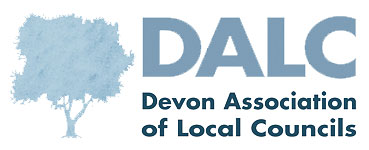Headlines from today’s provisional local government finance settlement

Today’s provisional local government finance settlement confirms our expectation the Government will continue with no referendum principles for local councils in 2021-22, which as you know we have continued to lobby for and was in our spending review submission.
The relevant section is on page 12 of the consultation document:
3.5 Council tax referendum principles for town and parish councils
3.5.1 In 2018-19, the Government announced that it did not intend to set referendum principles for town and parish councils for three years. This was contingent on the sector taking all available steps to mitigate the need for council tax increases and the Government seeing clear evidence of restraint in the increases set by the sector.
3.5.2 In 2020-21, the average Band D parish precept increased by 4.0%. This was the lowest percentage point increase in parish precept since 2012-13 but remains in excess of the rate of inflation.
3.5.3 In expectation that parish and town councils continue to show restraint when setting council tax precept levels, the Government proposes to continue with no referendum principles for town and parish councils in 2021-22. The Government will take careful account of the increases set by parishes in 2021-22 when reviewing the matter ahead of next year’s settlement.
Other headlines include:
- a uniform percentage increase in 2020-21 Revenue Support Grant (RSG) allocations, based on the change in the Consumer Price Index (CPI)
- a core council tax referendum principle of up to 2% for shire counties, unitary authorities, London boroughs, the Greater London Authority (GLA) and fire authorities
- a bespoke council tax referendum principle of up to 2% or £5, whichever is higher, for shire district councils
- an Adult Social Care (ASC) precept of 3% for authorities responsible for ASC, with the option to defer some or all of its use into 2022-23
- a referendum principle of £15 for police and crime commissioners
- setting no council tax referendum principles for Mayoral Combined Authorities
- a new round of NHB payments in 2021-22, which will not attract new legacy payments
- a new Lower Tier Services Grant of £111 million to local authorities with responsibility for lower tier services (for example, homelessness, planning, recycling and refuse collection, and leisure services).
- increase Rural Service Delivery Grant by £4 million, taking the total to £85 million
We will be responding to the consultation to welcome this proposal, also taking the opportunity to highlight the continued financial pressures placed on our councils from Covid funding to local government not being passed on and not being eligible for the Income Compensation Scheme.
The final settlement is expected to be published in late January/early February and debated and agreed by the House of Commons.
Banking and Internal Controls
You don’t have permission to view the content
Budget and Precept
You don’t have permission to view the content
Borrowing
You don’t have permission to view the content
External Audit

As well as the internal audit, parish and town councils are subject to a ‘light touch’ system of external audit known as a limited assurance review.
The external audit process begins annually, following the end of the financial year on 31st March. This can be a busy time for council staff as they prepare the end of year accounts for the audit process which is a demanding task, with tight deadlines set in legislation. Councillors have a responsibility for the financial management of the council so will want to support their staff and make sure they have the time and space to allow them to complete the work.
The Annual Governance and Accountability (previously known as the Annual Return) forms normally arrive from the external auditor, (currently PKF Littlejohn), towards the end of March; if your council’s contact details have changed in the last year then make sure you have informed the external auditor so the forms don’t go astray.
All local councils will have to prepare end of year accounts in order to create the Annual Governance and Accountability Return (AGAR). The AGAR is the principal means by which the council is accountable to its electorate. The AGAR is broken down into sections including:
- annual governance statements
- statement of accounts
- internal auditor report
- external auditors report (unless the council is certified as exempt)
Only the full council can approve the council’s end of year accounts at a properly convened meeting; this task cannot be delegated to a committee or to staff. Councillors will need to consider whether they have been provided with enough information to be confident before they vote on the end of year accounts.
Exemptions for councils with under £25,000 annual turnover
Whilst these councils still need to complete and publish the AGAR, only a ‘certificate of exemption’ from external audit needs to be signed and submitted to the external auditor. However, a number of other documents are required to be published on a website as per the Transparency Code for Smaller Authorities.
For more information
The Practitioners Guide (available below) is a guide to Proper Practices to be applied in the preparation of statutory annual accounts and governance statements in the relevant year. This is reviewed and published annually by the Joint Panel on Accountability and Governance. We also have ‘End of year accounts and audit’ training available.
JPAG Practitioners Guide 2023 – applies to Annual Governance and Accountability Returns for financial years commencing on or after 1 April 2023.
Practitioners Guide 2024 – applies to Annual Governance and Accountability Returns for financial years commencing on or after 1 April 2024.
Section 137
You don’t have permission to view the content
VAT
You don’t have permission to view the content
Financial Regulations
You don’t have permission to view the content
HMRC and PAYE

Clerks are officers and employees of the council so tax arrangements will need to be made by the council to ensure that it is compliant with HMRC.
PAYE and NIC
HMRC confirmed that the tax and National Insurance contributions of clerks and RFOs must be paid by the council as employer, under PAYE. Clerks and RFOs are office holders for the council and as such, cannot be self-employed. If the council is not already registered as an employer, then you can do that here.
HMRC offer a free piece of software called Basic PAYE Tools which can assist with making payments, although there may be other software available which may suit your needs better. Some councils also outsource their payroll to another organisation who can manage the PAYE for you.
A guide to PAYE implementation for clerks is available below for download.
Parish Council Clerks – PAYE implementation
Working from home
Where clerks are working from home, councils will need to be mindful of HMRC guidance on working from home payments; employers can reimburse employees for reasonable additional costs, including heating, lighting and water. Increased charges for internet access, home contents insurance or telephone calls can also be covered. However, the amounts paid are only tax exempt up to a certain figure (currently £6/week). For further guidance read the guide on payments for working from home below, supplied by The Parkinson Partnership.
The Good Councillors Guide to Finance and Transparency (2025)
You don’t have permission to view the content
